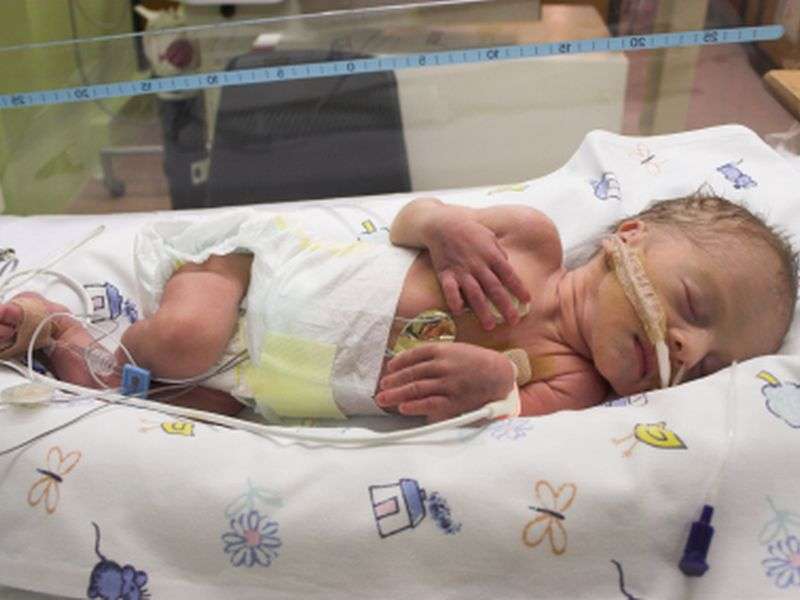Preemies have lasting risk for anesthesia adverse events

(HealthDay)—Preterm children have an increased risk of developing sedation/anesthesia adverse events, which continues up to age 23 years, according to a study published online Feb. 25 in Pediatrics.
To examine the age at which children who are born before 37 weeks gestational age are no longer at increased risk for sedation/anesthesia adverse events, Jeana E. Havidich, M.D., from The Dartmouth Institute in Lebanon, N.H., and colleagues conducted a prospective observational study of children receiving sedation/anesthesia for diagnostic and/or therapeutic procedures outside the operating room. The cohort included 57,227 patients aged 0 to 22 years.
The researchers found that preterm and former preterm children had higher adverse event rates than children born at term (14.7 versus 8.5 percent). There was a biphasic pattern for the development of adverse sedation/anesthesia events. The most commonly reported adverse events were airway and respiratory events. In both categories of patients, magnetic resonance imaging scans were the most commonly performed procedures.
"Patients born preterm are nearly twice as likely to develop sedation/anesthesia adverse events, and this risk continues up to 23 years of age," the authors write. "Further prospective studies focusing on the etiology and prevention of adverse events in former preterm patients are warranted."
More information: Full Text (subscription or payment may be required)
Copyright © 2016 HealthDay. All rights reserved.



















